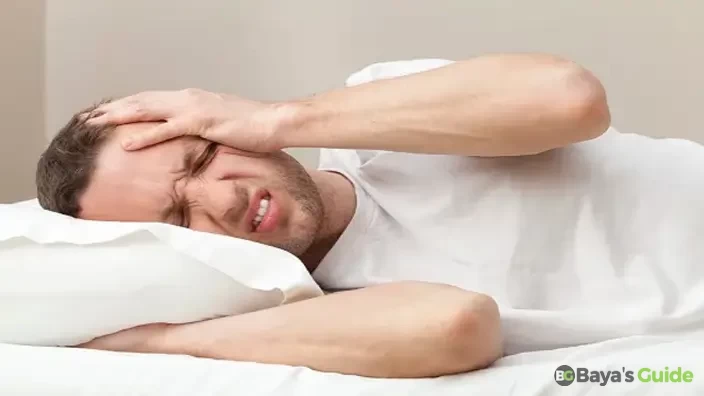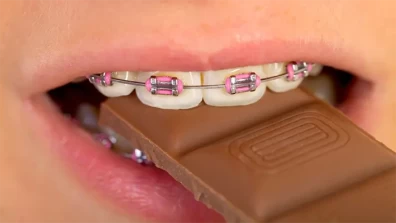It is an imposing challenge to have or deal with headaches, mostly when we want a peaceful night's sleep. If you can't sleep or wake up with a severe headache it could be a sleep disorder. It is an intense part of the day when you want to fall asleep but you can't sleep. It may include some natural types and your daily routine mistakes. Find out how you can cure and sleep with this headache. Delve into the different approaches to improving your sleep quality and controlling the aches or pains of the headache. You should visit the primary care physician and neurologist.
Table of Contents
Common Types Of Headache
Headaches are a widespread and most interruptive attribute of everyday life, headache almost affects all ages and individuals. This intro examination goal is to shed light on most of the universal varieties, including Migraines, stress-related headaches, Cluster headaches, Hypnic headaches, and Dehydrated headaches. The variety of headaches is vast, delve into it to enhance a better experience.
1- Migraine
Migraine is a neurological disorder recognized by the symptoms of vomit, sensitivity to sound and light, and nausea. It may occur on the half side of the patient's head and remains for hours to days. It can be stimulated by different factors like hormonal disorders, food choices, deficiency of sleep, environmental influences, etc. This may disturb your lifecycle.
If a person has a severe stress level a stress-related headache. The person feels pressure across the forehead, on the eyes, and on the backside of the neck. Know about your mental health and think about how you can manage or control of stress level and also how you can adjust the strategies for avoiding this headache. Visit healthcare or neurologist professionals if you will experience frequent or severe levels of headaches.
3- Cluster OR Neurological Headache
Cluster headache is a severe but rare type of headache. It has cyclical patterns or periods that can last from minutes to hours. It may be a half or full-head headache. A lot of tears flowed from your eyes and you could feel swelling around the under area of your eyes. Also if you feel sudden headache attacks you should seek emergency treatment.
4- Hypnic Headaches
This type of headache is also known as the "midnight or alarm clock headache". A person can have a hypnic headache if he is sensitive to light and sound. Patients can feel a severe type of headache lasting from minutes to hours. Also, you can feel that it often occurs regularly, multiple times in a week or month. You should consult it with your doctor and he will recommend the best plan for curing this type of headache.
5- Dehydrated Headaches
This type of headache is mainly caused by dehydration in your body. Our body loses fluids and mostly we do not hydrate ourselves. Along with this headache patient feels his mouth dry, lazy, muscular spasms due to the heat, and also feels a severe headache. After finding and addressing these symptoms or mistakes try to hydrate your body level.
Exploring The Factors Leading To Headaches
It is important to know that different people have different types of headaches and have different causes for them. Here we will delve into the main causes of headaches:
- Tension & Stress - Most people face severe kinds of headaches mostly those who are mentally disturbed, or have any kind of tension and stress.
- Strong Odors - Manifest that if sensitive people smell strong odors, Inhaling the polluted air from the environment may provoke severe headaches.
- Dehydration - Drinking water in a small quantity may lead to dehydration and can cause severe type of headaches.
- Muscle's Tesity - Neck and head muscle tension can cause a drastic type of headaches and you should have to take a proper diet plan.
- Sleep Disturbance - Sleep disorders can cause dreadful headaches like sleeplessness, poor sleep quality, etc.
Headache Relief: Techniques For Better Sleep
Here we come to explore the hard task that how we can sleep with a headache. Sleeping with a severe headache is a difficult challenge, but here we evaluate the ideas on how we can get a night of better sleep:
1- Create A Peaceful Environment
Examine that your sleeping environment is comfortable which will enhance your comfort zone and will help to reduce your stress level. By doing this you will get a peaceful sleeping environment. Make sure that the room’s environment is cool and quiet and the lights should be dim. Moreover, use the medicated pillows and matrices to increase your comfort level. This will help you to get a better sleep with a headache.
2- Stick Regular Bedtime Routine
It is important to establish a sleeping routine and promote ideas for getting the best sleep with headaches. Most of the time people do not bother to sleep at night or get a small nap. Sometimes, small and too many naps can cause an extreme headache. Stick with your time-to-sleep routine at least six to seven hours per day. Make sure that you follow the regular bedtime regime which will help to get a smooth sleep without any headache.
3- Screen-Free Time Before Bed
Before sleeping there is a common mistake in using electronic devices, like mobile Phones, PCs, and computers by which you will not be able to get a night of better sleep. Ensure that the window’s screen releases blue light which helps to disturb your mental health and also disrupts your sleeping period. To get better sleep avoid the use of electronic devices for three to four before going to bed.
4- Control Caffeine & Alcohol Intake
Caffeine is used for waking up purposes while after drinking alcohol you can easily get sleep. But after drinking them you will get quality sleep time. Before sleeping make sure that don’t intake any caffeine or alcohol because they have a bad impact on your mental health. If you avoid them at the end of the day or at night time you will get a better experience of having sleep without headache.
5- Ease Your Stress
In most cases, some headaches are due to increasing stress levels, improper diet plans, and tension. By following healthy diet plans, and regular exercises, yogas may help to reduce your stress level, tension, etc. Ensure that after them you will get an amazing experience of sleeping without any headache.
Read More:How To Make An Avoidant Miss You
Techniques For Treating Headaches
There are different types of curing and treating headaches. If you diagnose your headaches you will cure them by managing your stress level and reduce tension level. Another way is medication and headaches can be cured with different types of treatment. Delve into it and have a look at treatment methods for headaches.
1- Doctor-Recommended Medications
You should have to visit professional healthcare regarding your awful headache. They will diagnose your pain and suggest you decrease the frequency and drastic condition of headaches.
2- Let Your Body Relax
You should have to practice some exercises to maintain the stress level. Like yoga, a healthy diet plan, regular breathing and other exercises for muscles can help to reduce headaches.
3- Physical Therapy
You should visit a physical therapist because he helps to release muscle tension and also reduces the severe condition of headaches.
4- Biofeedback
It helps to recognize the tension level in the body. Biofeedback therapy helps to control physiological responses in our body like Headache, heart rate, Pulse rate, muscle tension, fever, etc.
5- Nutritional Supplements
Nutritional Supplements can also be used to reduce headaches. You should have to consult your healthcare and he will suggest you take nutritional pills and you will get relief from your severe headache.
Frequently Asked Questions
What Are The Familiar Types Of Headaches?
There are different types of headaches but the most common ones that we discussed above are migraines, stress-related headaches, Cluster or neurological headaches, hypnic headaches, and dehydrated headaches.
What Are The Causes Of Headaches?
As we discussed above the causes depend on different factors like tension and stress, Strong odor, Dehydration, Muscle Tension, sleep disturbance, etc.
What Factors Contribute To Headaches During Sleep?
Factors contributing to headaches during sleep include poor sleep posture leading to neck strain, sleep disorders like sleep apnea or insomnia, and environmental factors such as noise or light disturbances. Additionally, teeth grinding (bruxism), hormonal fluctuations, dehydration, stress, and medication overuse can also trigger headaches during sleep.
Conclusion
In conclusion, we've explored various approaches to addressing the challenging condition of headaches. We've examined the primary headache types and their potential causes and delved into strategies for managing headaches, including how to sleep better despite experiencing them. Maintaining a healthy lifestyle with regular exercise, yoga, and a balanced diet can contribute to improved sleep quality. Additionally, seeking medical advice for severe pain is essential for effective treatment.
Furthermore, creating a conducive sleep environment and avoiding stimulants like caffeine, alcohol, and electronic devices before bedtime can aid in preventing headaches. By prioritizing self-care and understanding these factors, you can enhance your sleep experience and alleviate headaches effectively.






















